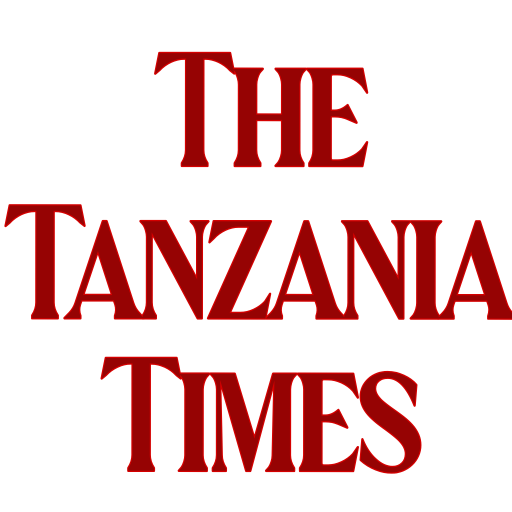As part of the most recent update to the Oxford English Dictionary, Oxford Languages has added two hundred new words from Kenya, Uganda and Tanzania, among them several original Kiswahili and Slang words.
“Oxford Languages is delighted to announce the addition of two hundred new and revised entries from East African English, words or terms used chiefly or exclusively in Kenya, Tanzania, and Uganda,” reads the statement from Kate Shepherd of the Oxford University Press (OUP).
The three countries which share a common Anglophone background despite their differing colonial histories.

Something else that Kenya, Tanzania, and Uganda have in common is their lingua franca, Swahili, and several of the new and revised entries in the East African update are borrowings into English from this language.
The following are just a few of Kiswahili words that have been entered into the New Oxford Dictionary. But note that the descriptions provided here could be different from what is printed in the final OED
Tanzania Times
JEMBE
The oldest in the update is JEMBE, referring to a hoe-shaped hand tool used for digging, first attested in an article by British explorer Sir Richard Francis Burton published in the Journal of the Royal Geographical Society in 1860.
But in Tanzania, ‘Jembe’ could also mean a hardworking person, or reliable people
SAMBAZA
One of the newest, also a Swahili loan word is SAMBAZA, which back in 2007 meant ‘to send mobile credit to someone’. Now, it is also used to mean ‘to share or send something’.
Perhaps the reference to mobile phone credit came about by the use of the Swahili word (meaning to spread, disperse, and scatter) in the name for a credit sharing system in Kenya introduced in 2005.
Sambaza is essentially a Kiswahili word meaning ‘distribute, share or supply.’
Not many Oxford English Dictionary updates go by without the inclusion of food and drink related words and our East African English update is no exception.
CHAPO
We start with CHAPO, a slang for CHAPATI (a thin pancake of unleavened wholemeal bread or pancake prepared on a frying pan).
Not to be confused with “Chapa,” the slang that Kenyans use to describe Money, especially banknotes
And we also have NYAMA CHOMA (fresh roasted or grilled meat), but this was already included in the Oxford Dictionary around this time in 2021.
CHIPS MAYAI
A delicacy founded in Tanzanian but also applicable in Kenyan cooking. It is a deep fried potato chips, slapped up with scrambled eggs’ omelette during cooking, to produce some local variation of oily pizza omelette.
DUKA
Where do people buy their commodities? Try a local duka (a small neighbourhood grocery store retailing a variety of items, mostly for domestic use. Dukani could mean ‘Inside the shop.’
MAMA NTILIE
Essentially a ‘Dinner Lady,’ or ‘Lunch Lady,’ the word ‘Mama’ means Mother. This lady cooks and sells food at affordable prices, usually along streets or construction sites. ‘Ntilie’ on the other hand means ‘put it on the plate for me.’
KIONDO
A Kiondo is a locally woven bag to carry items while shopping. This term applies only in Kenya, having originated from the Gikuyu Language.
Made from cord or string with long handles or straps that can be slung over the shoulder, the Kiondo is typical of the handicraft of the Kikuyu and Kamba peoples.
BONGO FLAVA
Bongo Flava is essentially popularized street music, made from computer beats mixed with vocals and produced by or for young people.
Bongo is slang for Dar-es-salaam, the commercial city of Tanzania. Flava on the other hand is slang for ‘Flavor,’ therefore, ‘Bongo Flava,’ could mean music done in the ‘taste of Dar-es-salaam.’
SINGELI
Tanzanian style of fast-paced electronic dance music which borrows heavily from the coastal ‘Chakacha,’ beat, it features so many words, many being meaningless, some saucy, but the idea is to get people dancing the night away.
Singeli is essentially ‘Single,’ which means one extended music track or several of them mixed in one non-stop file.
DALADALA
Urban commuter buses or vans, but usually privately owned.
The transport system coined the name from American ‘Dollar,’ which used to be the equivalent for 5 Tanzanian shillings in the 1970 and that was the fare charged for riding in the city bus or commuter vans, now known as ‘Dala-Dala,’ (Dollar-Dollar).

ENGLISH IN ‘OTHER WORDS’
The Oxford Dictionary has also added new English terms and phrases used with different meanings in East Africa.
Bumped into someone you know? You are lost! Well done! While the first of these terms might induce panic in other varieties of English, in Ugandan English both are used as greetings, the first in a manner similar to ‘long time no see’, the second used when encountering a person at work or in a state of activity.
The vocabulary of East African English is characterised not just by loan words but also by lexical innovations based on English elements.
KOLABO or Collabo
These include words formed through clipping, such as the verb collabo (esp. of musicians: to collaborate) or through compounding, such as desk mate (a person who sits next to another at school).
Some words have been formed through suffixation, such as un-procedural (irregular, illegal) while others have meanings specific to the region.
For example, did you know that the noun tarmac is used as a verb meaning ‘to walk the streets looking for work; to job hunt’ or that a stage is a bus stop or taxi rank?
As can be seen in the examples above, the English lexicon in East Africa is a reflection of the region’s fascinating diversity of languages and cultures.
Another product of this is Sheng, a street language blending Swahili with lexical and grammatical elements from English and other languages, originating as part of youth culture of Nairobi but now used by people of all ages and social classes.
The word itself is a blend of the words Swahili and English and was first used in 1985 in an issue of Nairobi’s Standard newspaper.


